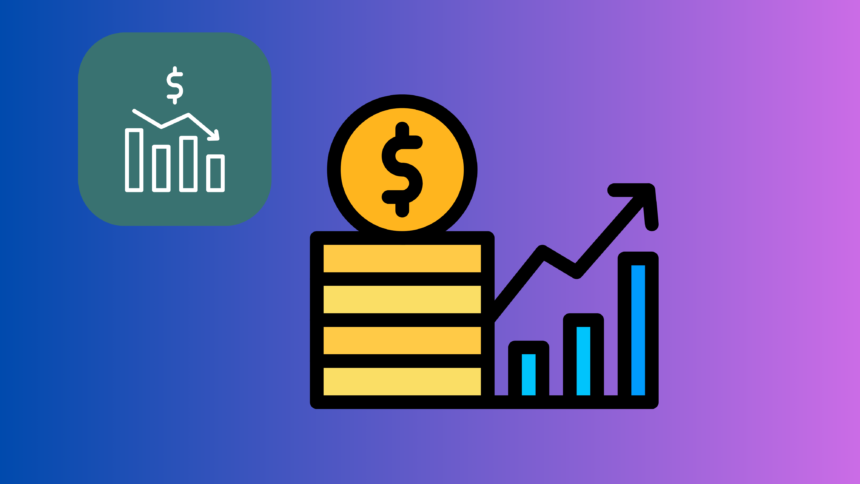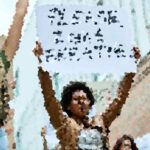We should pay closer attention to the interactions between politics, economics, and other realms
The COVID-19 epidemic shockingly shows the junction of politics, money, and other factors. Long warning that the globe was probably going to experience a catastrophic epidemic, public health officials have urged more readiness. Policymakers who have to concentrate on the next election, however, struggle to commit the time, money, and political capital to handle the abstract prospect of a future crisis. And thus most of the globe was unprepared for a worldwide public health hazard of the kind the new coronavirus presented.
Political reality has always shaped the policy response as the epidemic has raced over the globe. Hoping for eased restrictions and a return to routine before the threats have passed, several members of the public and certain legislators have opposed the advice of public health professionals. Business interests have simultaneously pushed for loopholes to suit themselves and for large subsidies—bailouts—to get them through trying circumstances.
Government reactions to the epidemic at the global level show the challenging dynamics of international collaboration. Microbes do not respect boundaries; so, a worldwide epidemic calls for a worldwide reaction. Clearly the best approach to handle an international public health emergency is a coordinated response by all countries. Under pressure from their voters, however, legislators have transferred funds from other nations, outlawed the sale of food and pharmaceuticals, and stockpiled necessary supplies. Every one of these policies costs money for other nations, albeit popular among national publics. In the last analysis, lack of collaboration renders everyone worse off. Such international organisations like the World Health Organisation try to coordinate a cooperative worldwide response to the global problem; nevertheless, they can be helpless against strong nationalist political forces (see, for example, Goodman and others 2010).
Every government must make difficult judgements on the suitable actions: what limitations to impose and when to relax them, where money will be spent and how it will be raised, and what national concerns can be curtailed to favour international cooperation? These choices have to weigh political restrictions, economic concerns, and public health advice. National policy responses to the COVID-19 epidemic vary for political, health, and economic reasons, just as the policy reaction to the 2007–08 financial crisis differed from nation to nation in line with local political economy conditions.
Politics under action
Political economists would not be surprised by this fiercely debated policy reaction to a worldwide threat. It takes place constantly. For instance, almost every economist agrees that removing all trade restrictions would help tiny nations. Still, no nation in the world today seeks unilateral free trade; it is nearly unheard of. Not sure why not. More generally, why do governments struggle so hard to implement appropriate economic policies? Why does the counsel of impartial observers, experts, and academics go so often disregarded?
Usually, the response is politics; usually, the proper response is also political. But that is too vague—like asserting that economic policies cause some nations to be prosperous and others to be impoverished. Exactly how does politics prevent governments from developing better policies even in the face of approaching crises? What does that imply regarding the proper and possible nature of economic policy?
Political economy is the study of how politics impacts the economy and vice versa (see box). Before elections, governments aim to boost the economy so that supposed political business cycles produce ebbs and flows of economic activity around elections. Likewise, political events are much influenced by economic situation. Political economists have revealed the straightforward (perhaps alarming) truth that the rates of inflation and economic growth provide all the data required to quite precisely forecast the outcomes of the previous 100 years of US presidential elections (see, for example, Fair 2018). Why then don’t elections help to compel politicians to select the best policies?
Political economy: what exactly is it?
Considered as the founders of modern economics are Adam Smith, David Ricardo, and John Stuart Mill. However, they identified as political economists, and from their publication in 1848 to the end of the century, Mill’s Principles of Political Economics remained the basic book of the profession. Early thinkers could not see the political and economic spheres as separate.
Two tendencies split the political from the economic study. Governments started first cutting their direct influence over the economy. Second, quite distinct political forms evolved: Europe moved from virtually entirely royal to progressively representational, and highly varied systems of government. Early in the 20th century political science and economics were different fields of study.
For most of the 20th century, this split rules. The simply economic concerns were serious enough to occupy economists with the Great Depression and development’s challenges. Likewise, the political issues of the time—two global wars, the emergence of fascism and communism—were so major as to call for distinct attention.
By the 1970s, nevertheless, it was abundantly evident that the division between the political and financial sectors was false. The Bretton Woods monetary system fell apart that decade, two oil price shocks occurred, and stagflation emerged—all of which emphasise how closely political and economic issues entwine themselves. Now, politics was mostly about the economic; the economy was high politics.
In three respects over the past 50 years, political economy has grown ever more important in both political science and economics:
It examines how political events shape the economy. Almost every conceivable economic policy is greatly influenced by the voters and interest groups. Political economists work to pinpoint pertinent groups and their interests as well as how political institutions influence policy.
It evaluates the political influence of the economy. Macroeconomic patterns can either increase or decrease the prospects of an incumbent. More microeconomically, characteristics of the economic structure or operations of specific companies or sectors might affect the type and direction of political involvement of those entities.
It studies politics using the instruments of economics. Politicians can be considered as companies, with voters as consumers, or governments as monopoly suppliers of products and services to constituent consumers. Scholars replicate political-economic interactions to provide a more theoretically exact knowledge of the fundamental elements guiding politics.
All three approaches have had significant impact on academics and legislators. Furthermore, political economy offers much to those who wish to transform society as well as to those who study society.
Where you stand relates to where you sit.
A fundamental economic idea is that, even if every policy generates winners and losers, any program that is good for society as a whole can be made to be positive for everyone in society. All that is needed is that the winners pay a little tax to reimburse the losers—and everyone benefits. Strong techniques are used by economists to make clear which economic policies benefit society most. Why, then, should economic policy be contentious?
A fundamental political economy theory holds that the winners dislike paying taxes to make compensation for the losers. And the fight is joined not on what is best for society but rather on who will be the winners and losers. I will battle what is right for the nation might not be best for my region, group, sector, or class.
Many people would agree that politics follows the golden rule: those with the gold create the rules even in democracies. Whether democratic or not, special-interest groups do seem to be somewhat important worldwide. Rich people, strong businesses, large banks and companies, and strong labour unions comprise these.
How else would one justify why Americans pay two or three times the world price for sugar? The United States boasts a few thousand sugar beetroot growers, some sugarcane farms, and 330 million sugar consumers. You would be mistaken if you assumed the 330 million would count for much more in politics than the several thousand. Subsidies and trade restrictions have driven sugar prices to the advantage of the sugar planters and farmers and disadvantage everyone else for decades.
Why should a small group of sugar growers matter more than the rest of the nation? A commonality of political economics is that, typically, concentrated interests prevail over scattered ones. The sugar growers are orderly and diligent in trying to persuade legislators. They should organise to advocate and finance politicians since they would go out of business without favourable government treatment. Consumers are thought to pay between $2 billion and $3 billion annually. For the ordinary American, that is a lot of money—but it comes to a few pennies daily. Over a few cents a day, no customer is going to approach an elected official or threaten to vote for an opponent.
Trade protection makes sense when producers are concentrated and consumers are scattered. Tens of millions of car consumers cannot organise themselves; few automakers can. Not just that. Though management and workers in the automotive sector may not agree on much, manufacturers and autoworkers agree they desire protection from outside competition. Politicians—especially those from regions where automotive production is significant—have a difficult time refuting a shared desire of workers and owners in a major industry.
Maybe this is not quite such a negative thing. For their living, sugar growers and autoworkers rely on encouraging policies. Who is to suggest that their employment is less valuable than consumer cheaper prices? Is cheaper sugar sufficient to bankrupt thousands of diligent farmers? There is no easy, generally agreed method to measure the advantages against the expenses. Actually, politics is the means by which society settles among competing interests; perhaps those with more at stake should have more influence.
Usually, political economists avoid assuming opinions on difficult moral and ethical problems of this kind. They want to know why civilisations decide to do what they do. Government policies favour sugar and vehicle producers over consumers in part because sugar or car producers have far more at stake and are far better organised than consumers.
Some customers, though, are focused. Sugar is sweet; the Sweetener Users Association’s companies also want it to be reasonably affordable. Coca-Cola, Hershey, and the like have pushed hard to modify American sugar policy. The strong concentrated interests on both sides of the matter help to explain why prices aren’t much higher than they are. Industrial products are the same in this regard. While steel consumers—like those of the automakers—don’t want protection, steelmakers do. Trade policy is a struggle among huge enterprises, not only between them and divided homes. Otherwise we would expect every industry to be safeguarded and trade to be heavily restricted everywhere.
Actually, a lot of strong interests support global commerce and investment. Global banks and multinational companies depend on a free flow of funds and goods. This is particularly true now as many of the biggest corporations in the world rely on intricate worldwide supply chains. Modern worldwide companies manufacture parts and components in hundreds of countries, then assemble them in hundreds more and distribute the finished goods everywhere. Trade restrictions affect these supply lines, hence most of the largest corporations in the world also actively promote freer trade.




